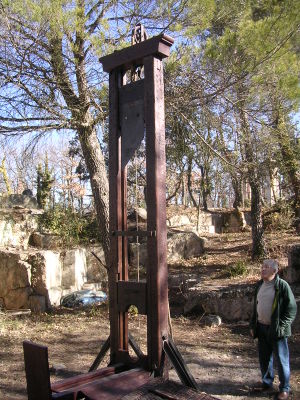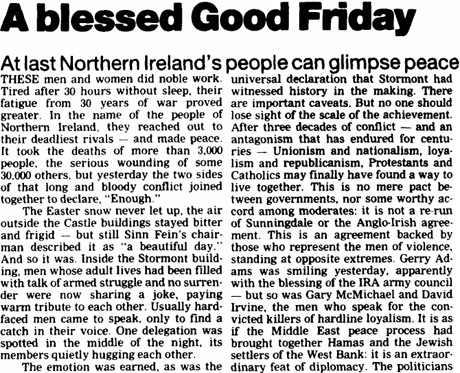The “preferential option for the poor” is one of those great social doctrines nobody ever heard of—and to the extent that it’s known, it’s generally loved by the left and loathed by the right. So, the sudden interest in this Catholic social principle—inside the halls of power—is unexpected. That’s all the more so because the attention has emanated from a corner office in one hall of exceptional power, occupied by Paul Ryan.
The Republican chairman of the House budget committee isn’t knocking the preferential option, either. He’s saluting it as “one of the primary tenets” of Catholic social teaching, which he currently avows. He’s complimenting a doctrine that says a nation and its government should have no greater priority than lifting up the poor. Yes, I’m still talking about social-welfare-budget-slashing, upper-bracket-tax-cutting, Ayn Rand-adulating Paul Ryan.
True, Ryan appears to be seeking cover as much as wisdom. All this got started with religious leaders and activists who denounced his budget proposal unveiled on March 20, which would deal a blow to programs for the poor and homeless. The Wisconsin lawmaker responded a couple of weeks ago with a Christian Broadcasting Network interview in which he held forth on Catholic social principles including the preferential option for the poor.
Then the U.S. Catholic bishops chimed in. They’ve been shy on social justice issues of late, but last week they roused themselves to complain publicly about the Ryan plan, which could come off as a preferential option for billionaires. The U.S. Conference of Catholic Bishops released letters it had sent to two congressional committees including Ryan’s, declaring that his plan fails to meet “moral criteria.” That includes placing a “circle of protection” around programs for the needy like Food Stamps.
Ryan, a Catholic, brushed aside the criticism on Fox News. He argued lamely that the letters made public on April 17 didn’t count because they came from committees of bishops, not from all of the American bishops, who meet and speak collectively only twice a year at general meetings.
Though not mentioned by name, Ryan had probably helped stir the bishops by arguing in the press that his budget embodies the social principles. (Ryan has also tried to leverage the small-is-beautiful Catholic doctrine of “subsidiarity”—a topic for another time.) On Tuesday of this week, an ad hoc group of nearly 90 Georgetown University scholars issued a letter going after Ryan for his representations of Catholic social teaching, in advance of a lecture he will deliver there tomorrow. In response, Ryan continued with his theological repartees. Through a spokesman on Tuesday he said the preferential option for the poor “does not mean a preferential option for bigger government.”
Ryan’s clearest word on the matter (so far) came in the interview aired April 12 on CBN, in which he professed his Catholic faith and his adherence to the “social magisterium” or teaching authority. He continued, in part:
… the preferential option for the poor, which is one of the primary tenets of Catholic social teaching, means don’t keep people poor, don’t make people dependent on government so that they stay stuck at their station in life. Help people get out of poverty out onto [a] life of independence.
One could question if Pell grants for college tuition (on Ryan’s chopping block) breed dependency among needy families any more than billions in tax subsidies do among Big Oil executives. That aside, I find it hard to argue with what he says here, as far as it goes. The preferential option is about liberating the poor, not making them dependent on government or any institution.
Sending the Rich Away Empty?
The concept is, after all, a product of liberation theology. It took off in the 1960s with the writings of left-leaning Latin American liberation theologians and made a gradual landing in Rome, more or less intact. In his 1987 encyclical Sollicitudo Rei Socialis (“The Social Concerns of the Church”), Pope John Paul II called the preference for the poor “a duty of solidarity.”
It has often been politicized, but it’s not really political. The doctrine is best understood as a statement of faith in the God of the Hebrew Scriptures and in Jesus of Nazareth. In ancient Israel, the prophets gave witness to God’s special concern for the powerless. At the start of his public ministry, Jesus returned to the synagogue in the dusty hamlet where he had grown up, and proclaimed his mission to “bring glad tidings to the poor.” Soon after, an angry mob chased him out of town.
In my fallible reading of the biblical narratives, this Good News for the poor actually began with Jesus in the womb. After an angel delivered to Mary the surprising news that “the Lord is with you,” she went to visit her cousin Elizabeth, who declared: “Most blessed are you among women, and blessed is the fruit of your womb.” At that moment Mary broke into song, responding with her “Magnificat.”
My soul magnifies the Lord … he has cast down the mighty from their thrones, and lifted up the lowly; he has filled the hungry with good things, and sent the rich away empty….” (Luke 1:46-55)
Sounds like what some would call “class warfare.” That’s been more or less the rap against liberation theology and the preferential option. But the teaching, as articulated by most theologians (and leaving aside for now the young Blessed Mother’s rabble-rousing), isn’t against anyone. It’s not meant to exclude the wealthy. Its purpose is to include the poor and make them full participants in society. The option is, fundamentally, for the whole community, because poverty inflicts countless wounds on the social body, tearing away at the bonds of solidarity. What suffers most is the common good.
What does it mean to include the poor? A lot of things, but popes and theologians have said it starts with simply listening to the downtrodden and lifting up their voices in the public debate. That would be a good start for anyone cobbling together a budget plan, but it’s a step rarely taken.
Fair to say that this teaching calls for government to stand with the poor and not lopsidedly with the rich. Ryan might have it backwards, in other words (as many of our political leaders do). Still, he should get points for venturing out of his ideological comfort zone and debating poverty on liberationist terms. By endorsing the preferential option, he’s implicitly acknowledging in theory (I realize the qualifiers are mounting here) that the poor should come first. That’s the key moral principle.
The rest is how that principle gets put into practice. The rest is—in the best sense of the word—politics. …read more








